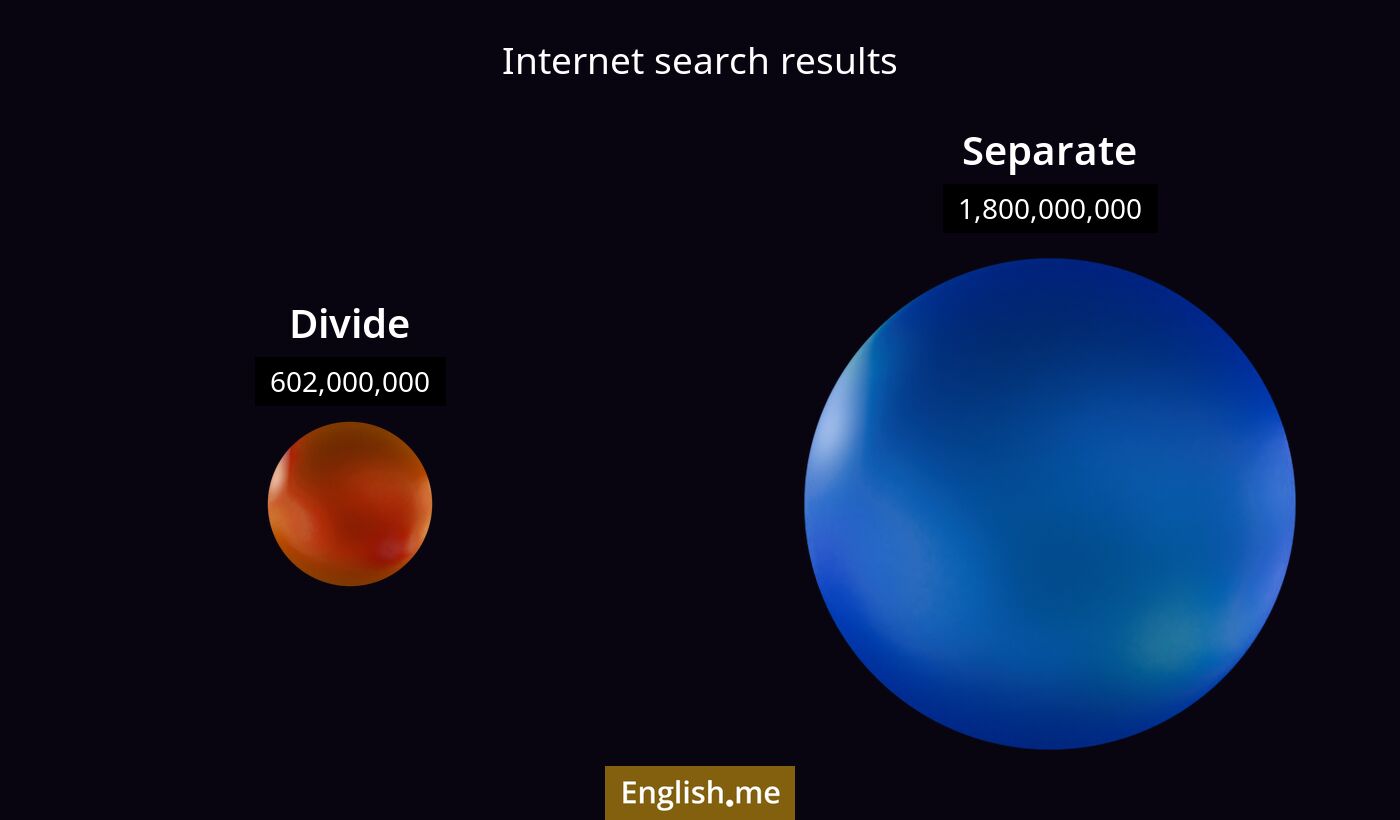"Divide" vs. "separate": understanding the differences
Reviewed and edited by  Anwar Kareem 04/12/2024, 16:00
Anwar Kareem 04/12/2024, 16:00
English.me team member

 What is similar?
What is similar?
Both "divide" and "separate" involve the action of splitting something into parts or groups. They can both describe the process of partitioning or distributing elements from a whole into distinct sections.
 What is different?
What is different?
"Divide" often implies splitting something into parts that may be equal or defined portions, and it can also refer to mathematical operations. "Separate" generally means to set or keep things apart and can imply creating a distinction or disconnecting elements without necessarily dividing them into specific portions.
 Which one is more common?
Which one is more common?

 Examples of usage
Examples of usage
Divide- Let's divide the pizza among all the guests.
- Teachers often divide students into groups for projects.
- When you divide 20 by 4, the result is 5.
- Please separate the recyclable items from the trash.
- They decided to separate the twins into different classes.
- It's important to keep work life and personal life separate.

 English
English español
español française
française italiano
italiano deutsche
deutsche 日本語
日本語 polski
polski česky
česky svenska
svenska Türkçe
Türkçe Nederlands
Nederlands